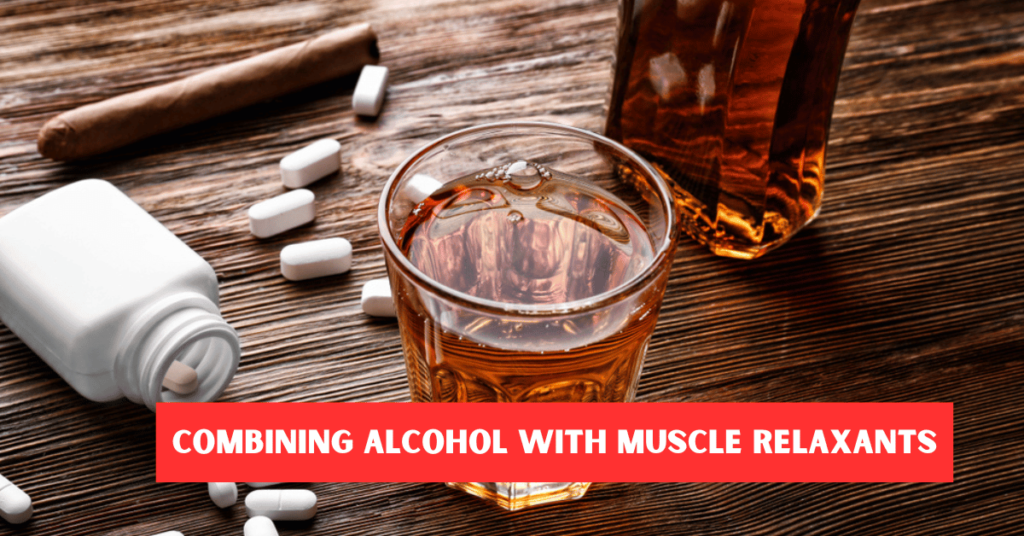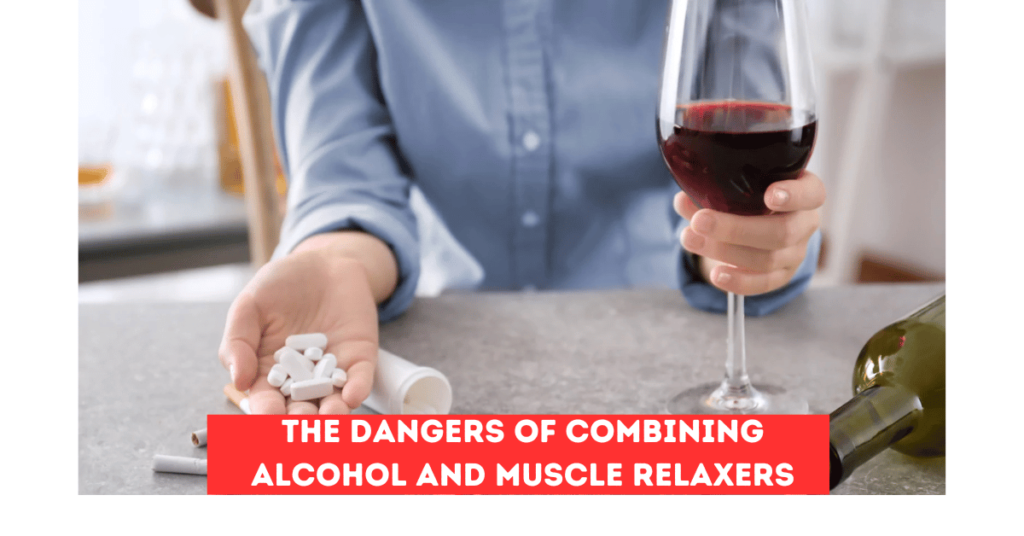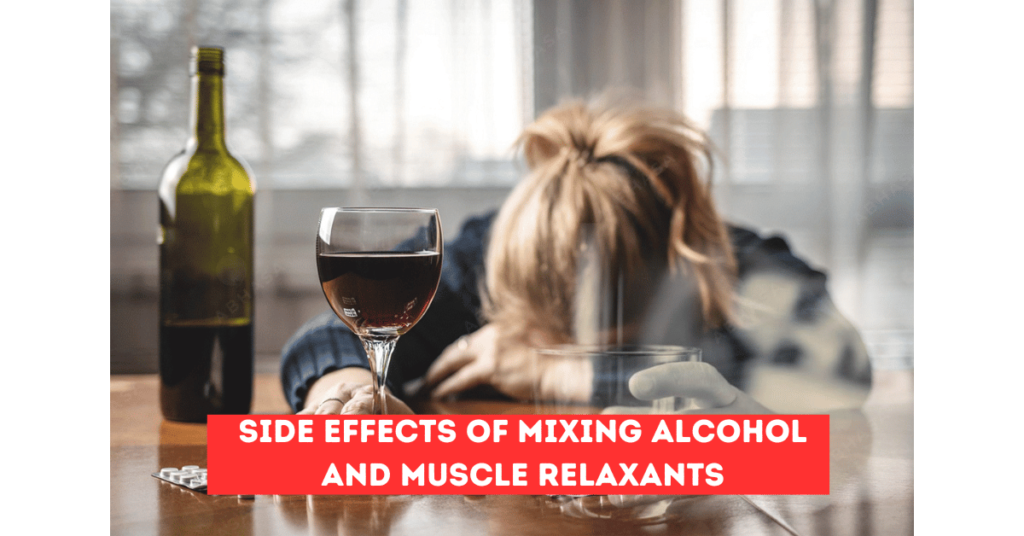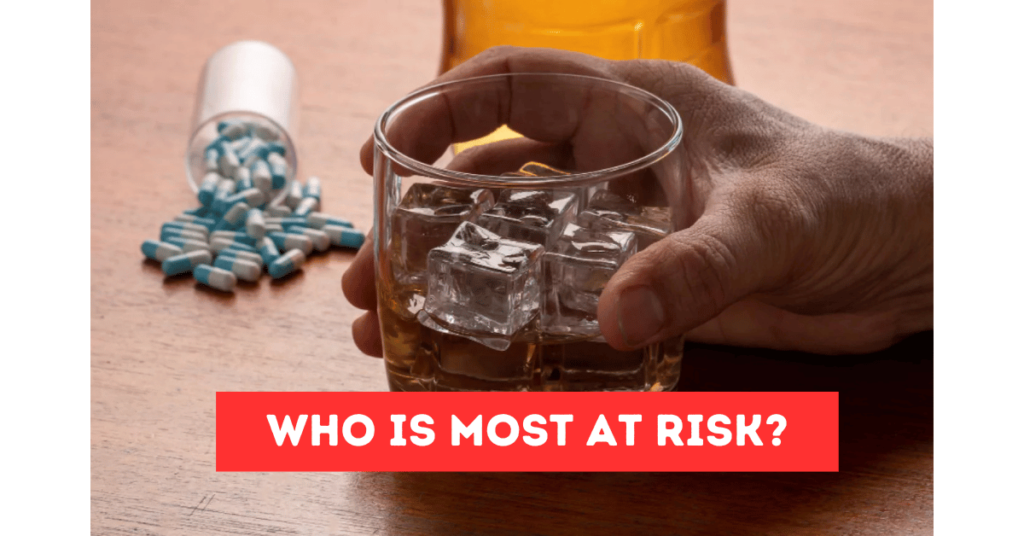Discover the hidden dangers of combining alcohol with muscle relaxants. Find out how this risky mix affects your body and ways to avoid serious side effects.

Combining alcohol with muscle relaxants poses serious risks to health and wellbeing. While both alcohol and muscle relaxers are commonly used to relieve stress and alleviate muscle tension, they can have dangerous interactions when used together. Understanding these interactions is crucial to avoid serious side effects, potential overdose, and even life-threatening situations.
What Are Muscle Relaxers?
Muscle relaxants, or muscle relaxers, are medications used to relieve muscle spasms, tension, and stiffness. They are commonly prescribed for conditions such as back pain, neck pain, and fibromyalgia. Some of the most popular muscle relaxers include cyclobenzaprine (Flexeril), carisoprodol (Soma), methocarbamol (Robaxin), and baclofen.
Muscle relaxers work by reducing nerve signals that cause muscles to contract. This action helps to relieve tension and pain, allowing for greater comfort and mobility. However, they come with their own set of side effects, including drowsiness, dizziness, dry mouth, and fatigue. These side effects can be exacerbated by the consumption of alcohol, leading to dangerous outcomes.
How Alcohol Affects the Body
Alcohol is a depressant that affects the central nervous system (CNS), slowing down brain function and altering coordination, judgment, and motor skills. Small amounts of alcohol can make one feel relaxed and less inhibited, but as consumption increases, the effects on the body intensify. Large quantities of alcohol can result in slurred speech, impaired judgment, confusion, difficulty walking, and even unconsciousness.
When alcohol is mixed with other CNS depressants, such as muscle relaxers, the sedative effects are amplified, increasing the risk of serious health complications.
The Dangers of Combining Alcohol and Muscle Relaxers

1. Intensified Sedation and Drowsiness
Muscle relaxers already cause drowsiness and sedation, and alcohol amplifies these effects. This combination can impair coordination, slow reaction time, and create extreme fatigue. This level of sedation increases the risk of accidents, especially if one is driving or operating machinery.
2. Respiratory Depression
One of the most dangerous risks of combining alcohol with muscle relaxers is respiratory depression. Both substances suppress breathing, and when taken together, they can significantly slow down the respiratory rate. Severe respiratory depression can lead to hypoxia (lack of oxygen in the body), which may cause brain damage or even death.
3. Increased Risk of Overdose
Muscle relaxers and alcohol are both depressants, and when combined, they overwhelm the body’s ability to process these substances safely. This combination places a significant strain on the liver, which is responsible for breaking down both alcohol and medications. The liver’s inability to keep up with both can lead to an overdose, potentially resulting in coma or death.
4. Impaired Cognitive and Motor Functions
The combination of alcohol and muscle relaxants can cause severe impairments in cognitive and motor skills. Individuals may experience blurred vision, slurred speech, poor judgment, and memory lapses. This impairment can lead to falls, accidents, and other risky behaviors that could result in injuries.
5. Risk of Addiction
Alcohol and certain muscle relaxants, like carisoprodol, have addictive properties. Mixing the two can increase the risk of developing a dependency on one or both substances. Long-term use of this combination can lead to tolerance, where higher doses are needed to achieve the same effects, further escalating the risk of overdose.
Side Effects of Mixing Alcohol and Muscle Relaxants

Combining alcohol with muscle relaxers can result in a range of unpleasant and potentially dangerous side effects:
- Extreme drowsiness and dizziness
- Confusion and memory problems
- Low blood pressure (hypotension)
- Nausea and vomiting
- Mood swings and irritability
- Weakness and fatigue
These side effects can vary depending on the type of muscle relaxant used, the amount of alcohol consumed, and an individual’s overall health.
Common Muscle Relaxants and Their Interactions with Alcohol
1. Cyclobenzaprine (Flexeril)
Cyclobenzaprine is a popular muscle relaxant that is often prescribed for short-term use. When combined with alcohol, cyclobenzaprine’s sedative effects are heightened, making individuals more susceptible to drowsiness, confusion, and dizziness.
2. Carisoprodol (Soma)
Carisoprodol has high abuse potential and can cause significant sedation on its own. When mixed with alcohol, it can lead to intense drowsiness, hallucinations, and a heightened risk of addiction. This combination is particularly risky and should be avoided.
3. Methocarbamol (Robaxin)
Methocarbamol is used to relieve muscle pain and stiffness. Mixing this muscle relaxer with alcohol can lead to serious dizziness, fainting, and difficulty concentrating. The risk of falls and injuries increases significantly with this combination.
4. Baclofen
Baclofen is commonly prescribed for patients with multiple sclerosis and other neurological disorders. It is known to depress the central nervous system, and when taken with alcohol, it can lead to severe respiratory depression, nausea, and confusion.
Who Is Most at Risk?

The risks of mixing alcohol and muscle relaxants are higher in certain populations, including:
- Older Adults: The elderly are more sensitive to the effects of both alcohol and muscle relaxants due to changes in metabolism and organ function.
- People with Liver or Kidney Problems: These individuals have a reduced ability to metabolize substances, increasing the risk of toxic buildup and overdose.
- Individuals with Mental Health Disorders: Those struggling with depression, anxiety, or substance abuse disorders may be more prone to misuse these substances, amplifying the risks.
What to Do in Case of an Emergency
If someone has consumed both alcohol and muscle relaxers and is exhibiting signs of overdose or respiratory distress, it is crucial to act quickly. Call emergency services immediately and, if possible, provide details about the substances taken. While waiting for help to arrive, keep the individual calm and seated to avoid falls or injuries.
Precautionary Steps to Avoid the Risks
1. Follow Prescriptions Carefully
Always follow the instructions provided by a healthcare professional. If a muscle relaxer has been prescribed, avoid alcohol consumption and inform your doctor if you are using any other substances.
2. Consult a Healthcare Provider Before Drinking
If drinking alcohol is unavoidable, consult your healthcare provider. Some medications may allow for small amounts of alcohol, while others may strictly prohibit any intake.
3. Educate Yourself and Loved Ones
Understanding the risks of mixing alcohol and muscle relaxers can help prevent dangerous situations. Share this information with friends and family to promote safer practices and encourage open conversations about medication safety.
The combination of alcohol and muscle relaxants is a risky and potentially life-threatening mix. Both substances depress the central nervous system, leading to severe side effects, impaired judgment, and increased risk of overdose. By following medical guidelines, understanding the dangers, and prioritizing safety, individuals can avoid the risks associated with mixing these two depressants. Always consult a healthcare provider if you are unsure about the effects of alcohol with any prescribed medication.

Content Director at BlackFlowerBar|| He is a Journalist & Ghostwriter from Caracas-Venezuela, with more than six years of experience in Academic Research. She also has a postgraduate education in International Relations and a Master’s Degree in Public Management. In the last few years, she has been working in sales and digital marketing.
